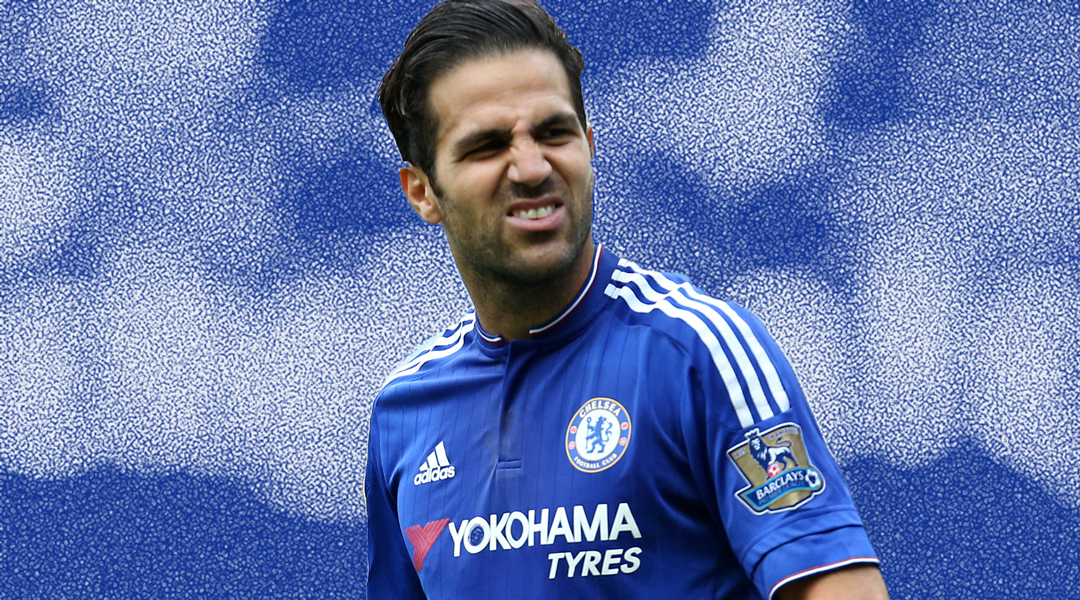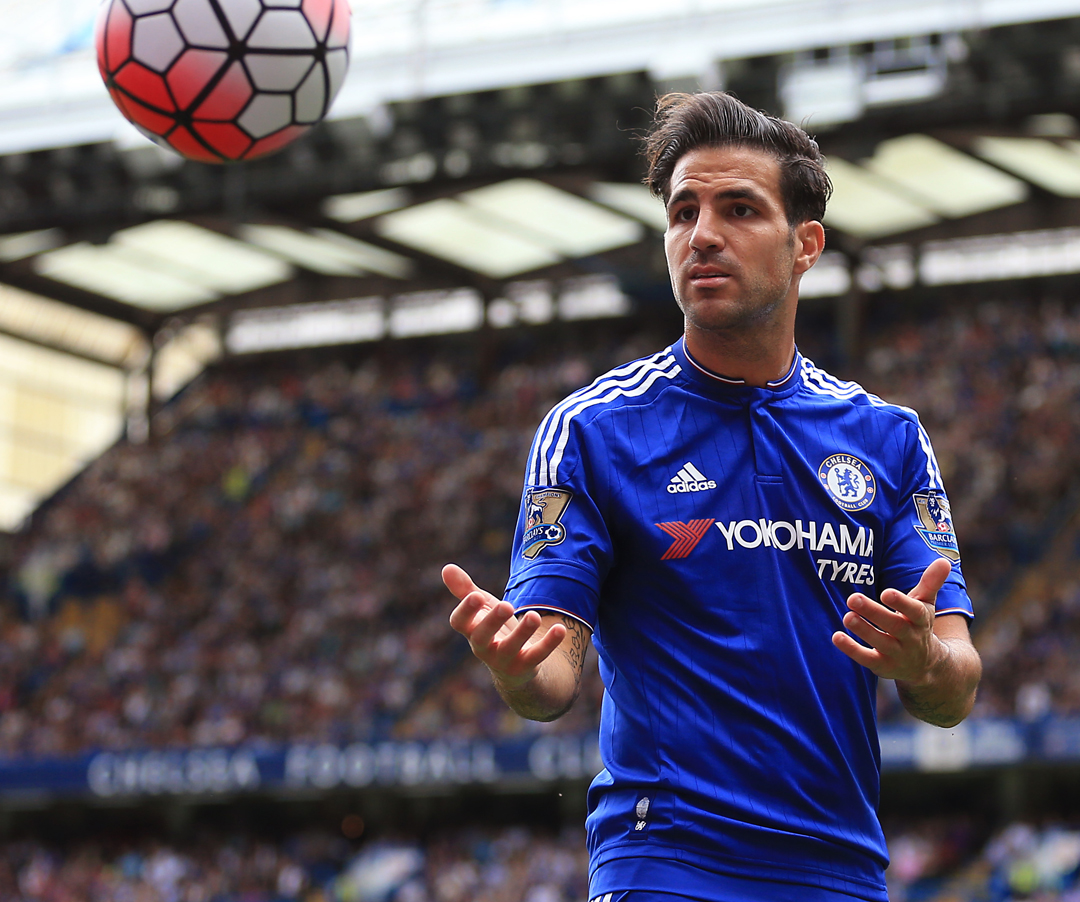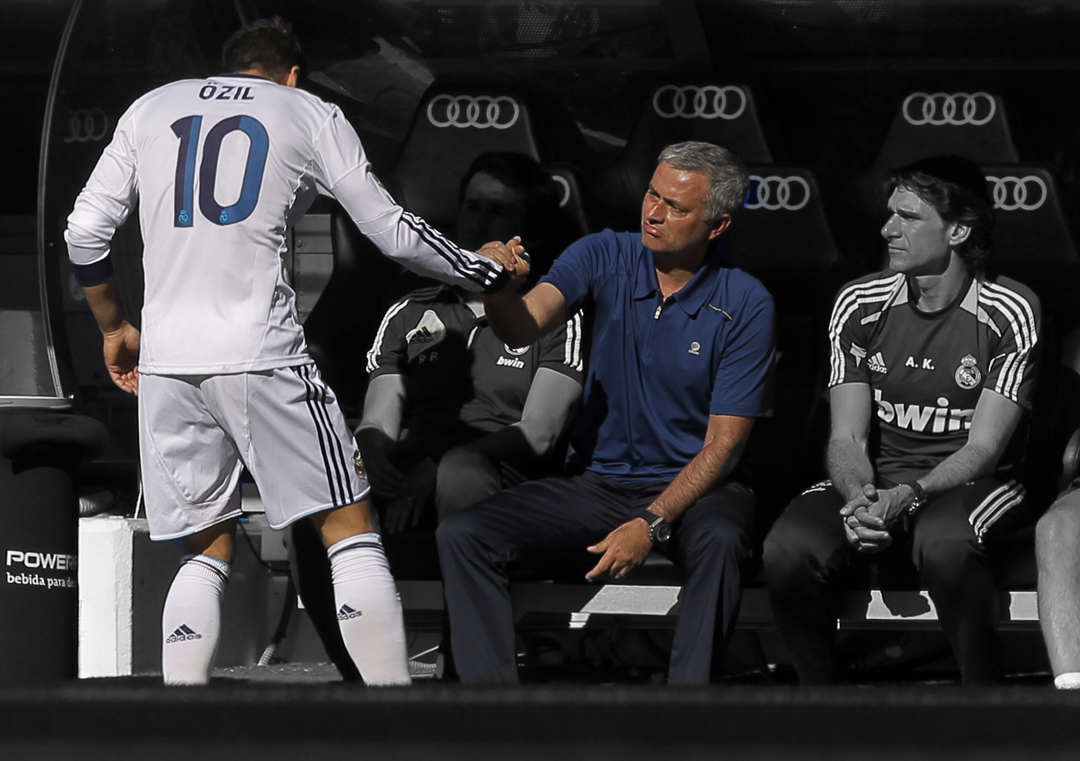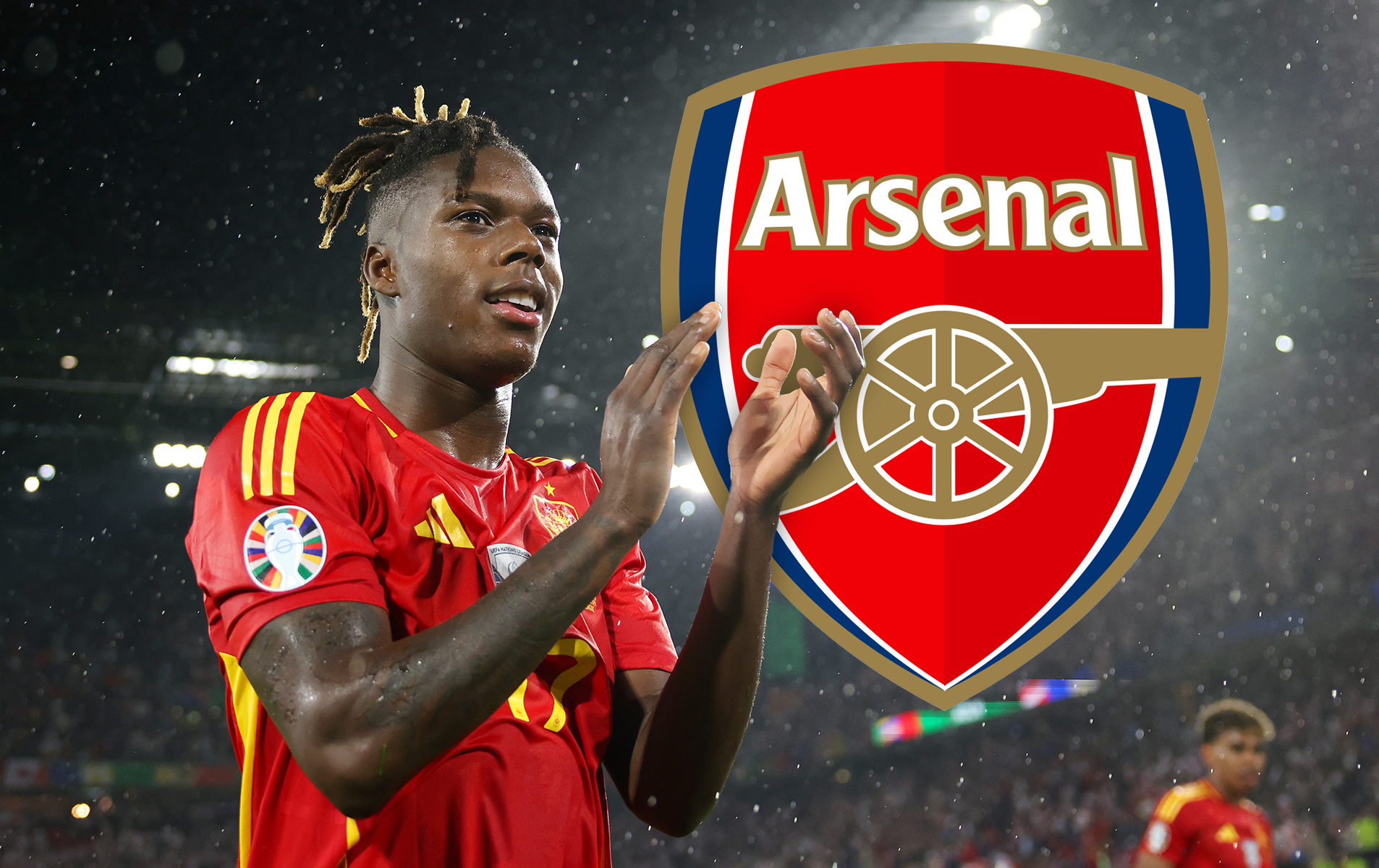What on earth has happened to Cesc Fabregas?
The Spaniard's form has taken a hit since the second half of last season. Alex Hess wants to know why...

Apps: 4
Average passes: 75
Pass accuracy: 81.3%
Key passes per game: 1.3
Apps: 33 (1)
Average passes: 80.6
Pass accuracy: 85.2%
Key passes per game: 2.8
Perhaps Jose Mourinho wasn’t being greedy after all. The Chelsea manager's reported summer-long craving to add Paul Pogba to a squad that had just strolled to the league title initially reeked of big-club gluttony. But to anyone who has watched his team during August and witnessed Cesc Fabregas in his current state of burned-out ineffectiveness, Mourinho’s coveting of another elite midfielder suddenly appears grounded more in gritty realism than greedy fantasy. Nemanja Matic too looks leaden; young Ruben Loftus-Cheek is next on call for engine-room duties.
And yet, only a year ago, it was Fabregas providing Mourinho’s side with a generous sprinkle of early-season fantasy.
The difference between then and now is chalk and cheddar. At this point last season Cesc had six assists to his name; he has managed none this term. That statistic may be crude, and the sample size small, but it is illustrative nonetheless.
That he is one of a horde of Chelsea players whose form has taken a lemming-like group-plunge lends weight to the theory that Mourinho's high-intensity management spawns two-year success cycles which, once finished, leave only scorched earth and spent squads. Look closer, though, and you'll notice that Fabregas' own form nosedived far earlier than the rest, well before the end of last season, and so there's surely an individual case to be answered to.

Pivot plight
Fabregas’ sudden urge to play Santa Claus to opposing midfielders' well-behaved kids when in possession has seen Matic’s workload soar
So far this term the Spaniard has been stationed in a double-pivot at the base of Chelsea’s midfield and it has been well-documented how the role has laid bare his defensive deficiencies. The tone was set in Chelsea’s opener against Swansea, when his contribution in tackles and interceptions totalled a worrying zero, and since then opponents breezing gaily past the Spaniard en route to goal has become a recurring theme. David Silva – hardly a breakneck player himself – did it in the opening seconds of Chelsea’s trip to the Etihad, while the attacks leading to West Brom’s two goals both skirted past Fabregas as if he were a knife-wielding hitchhiker.
But as well as exacerbating Cesc's weaknesses, this withdrawn role also blunts his strengths. The former Gunner has always been a midfielder who thrives in the final third rather than as a deep-lying, tempo-dictating puppeteer. Fabregas is at his best with the ball at his feet on the edge of the box, from where defences can be dissected and his precise shooting renders him a goal threat. This in mind, his status as a high-level holding midfielder is about as realistic as a match report from Chelsea’s official website.
Get FourFourTwo Newsletter
The best features, fun and footballing quizzes, straight to your inbox every week.

Mourinho said after Saturday’s defeat that some of his men “were not in the game”, with one player having especially irked him: "I blame myself for not changing him because I kept him in the game for 90 minutes.”
On Match of the Day, Ruud Gullit identified the mystery man to be Branislav Ivanovic, who’d spent his Saturday being led on a merry dance. Perhaps he was right, but the anonymity implied by Mourinho perhaps better described his only central midfielder to have lasted the game, and who presented as much an obstacle to Palace’s attacks as Mike Catt did to Jonah Lomu in 1995 (rugby gag, sorry folks).
Mourinho’s desire to maintain a lean, two-men-per-position squad has its merits but, 24 hours after his haphazard attempts to shore up his midfield with the lightweight Loftus-Cheek, the sight of Oriol Romeu unfussily bossing proceedings as Southampton beat Norwich may well have sent his mind wandering.
The downturn in Matic’s form has doubtless exacerbated Fabregas’ problems, with the Spaniard having taken to his extra defensive work with all the smooth-running ease of the fax machines at the Bernabeu.
But it’s a two-way process: Cesc's sudden urge to play Santa Claus to opposing midfielders' well-behaved kids when in possession has seen Matic’s workload soar, and the Serbian, scurrying about trying to snuff out all these attacks, has been made to look even more sluggish.

Breaking the mould
Fabregas isn’t able to revert to a messier, muckier Plan B if the preferred modus operandi is failing
The fact that Fabregas’ first wobble at Chelsea, which came just after Christmas last season, also coincided with his team sailing into choppy waters lends weight to the suspicion that he is at his best when those around him are playing cohesively – and that his form suffers inordinately when they aren’t. As a player whose towering technical gifts are almost equalled by his complete lack of physical ones, Cesc isn’t able to revert to a messier, muckier Plan B if the preferred modus operandi is failing.
Compare him to his Chelsea predecessors. Michael Essien could lift the crowd with a thundering tackle or a powerful surge forward if Chelsea were chasing the game; Michael Ballack and Frank Lampard would rattle in a few bullet-like long-rangers to raise the tempo, and ensure that any 50/50 challenges would be theirs.
Fabregas is arguably a more talented footballer than any of those three, and yet is perhaps the least able of the lot to reverse the momentum of a game he’s losing. (The flipside, as we saw a year ago, is that he is perhaps the most effective when things are going well.)

This isn’t to say that Fabregas is a completely passive presence, his form simply rising and falling in accordance with however his team-mates are doing (he did drag Arsenal to a fair few barely deserved victories, especially during his latter years in North London). But it does raise the question of just how decisive a player he can actually be on a regular basis.
New way, Jose
All the while under Mourinho, unimposing technicians like Mesut Ozil, Wesley Sneijder and Joe Cole have been steadfastly consigned to the flanks
And with this question comes another, more introspective one for Mourinho to consider (if indeed the Portuguese does introspection at all). Just how wise was he, when signing Fabregas, to abandon his decade-long policy of central midfield being a place for clout ahead of craft? It's a policy that's rarely failed him. Along with Essien, Ballack and Lampard, he can count Claude Makelele, Sulley Muntari, Thiago Motta, Esteban Cambiasso, Sami Khedira and Xabi Alonso among those to have served in his engine rooms, the common link being a combination of power, height and tenacity.
Maniche, Lassana Diarra and Essien – all warriors rather than wand-wavers – are the midfielders to have played for Mourinho at multiple clubs, and Christian Chivu, Javier Zanetti and Pepe defenders whose brawn has been redeployed upfield. All the while, unimposing technicians like Mesut Ozil, Wesley Sneijder and Joe Cole have been steadfastly consigned to the flanks. In 10 years, only Luka Modric, during Mourinho’s ill-fated final season in Madrid, has been a regular central midfielder without a genuine physical presence – and even then he was hardly the first name on the team-sheet, and often played a more advanced role.

Maybe Mourinho thought Fabregas’ waifishness would be offset by the monstrous physicality of Matic beside him. For a year – domestically at least – he was largely right. But now, with the latter in miserable form, Chelsea’s defence is being exposed with startling frequency.
“[Manchester] City reacted to the fact they had lost the title by buying fantastic players,” Mourinho said at the weekend – a line thats subtext was barely even subtext at all. Right now, Cesc Fabregas may be one of the only people at Chelsea relieved that his club didn’t follow suit.
